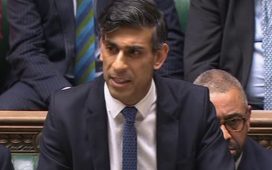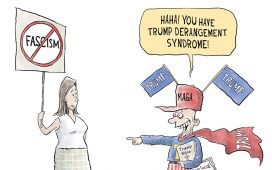
iz Truss has pledged to help Londoners weather the growing economic storm as the two Tory leadership candidates came under growing pressure to do more to deal with the financial “timebomb” facing millions of families.
Writing in the Evening Standard, the frontrunner to become Britain’s next prime minister acknowledged: “Londoners are struggling with the cost of living, and some of the poorest parts of our country are in the capital”.
But, sticking to her commitment to immediately slash taxes to help ease the cost-of-living crisis, the Foreign Secretary vowed not to leave the capital behind as the Government presses ahead with its flagship policy of levelling up the UK.
“When London does well, Britain does well,” she said. “It is vital London thrives not just for people in the capital but across our country. People can trust me to lead us through these turbulent times and ensure our greatest days lie ahead.”
With analysts forecasting that energy bills could rise by 70 per cent in October to almost £3,360 a year per household, Ms Truss and her rival for No10, Rishi Sunak, were facing growing calls to announce more plans to ease the crisis.
Stepping up his calls for immediate action, the former Labour prime minister Gordon Brown said on Monday that outgoing premier Boris Johnson should work with the Tory leadership candidates to tackle what he described as a “national emergency”.
“This is the time to take action and that’s why I’m saying that government ministers should be meeting with leadership candidates so that they can agree a package that can be implemented immediately,” said Mr Brown, who warned at the weekend that “a financial timebomb” will explode for families in October.
But the two Tory rivals are at odds over the best way to handle the crisis, with Ms Truss saying she will hold an emergency budget within weeks of entering Downing Street offering immediate tax cuts, while Mr Sunak is arguing that more “direct” action is needed.
Allies of the contenders traded blows over the economic crisis again on Monday, with former Conservative Party chairman Oliver Dowden, an ally of Mr Sunak, insisting that the Foreign Secretary’s plan to reverse April’s 1.25 percentage point rise in National Insurance was not sufficient.
She has also said she would scrap a planned rise in Corporation Tax due to come in next year to boost growth.
Referring to a £15 billion package of support handed out by Mr Sunak in May while he was still chancellor, Mr Dowden told Sky News: “It’s that kind of scale of direct intervention that is required. And I think, just proposing to cut the National Insurance contribution, which will only help people on the lowest incomes, working full time and on the national living wage by less than £60, is not sufficient to this scale of challenge. There is no doubt that we do need an intervention of a considerable scale to deal with this, because we have to be honest with people about the scale of the challenge that they are facing.”
Ms Truss faced a backlash over the weekend after she appeared to rule out more “handouts” in favour of lowering the tax burden.
Mr Sunak seized on the remarks and in an article with The Sun said her tax-cutting plan meant a “big bung to large businesses and the well-off, leaving those who most need help out in the cold”.
“These tax cuts simply won’t touch the sides,” he added. “We need clear-eyed realism, not starry-eyed boosterism.”
Ms Truss’s campaign team claimed her comments, made in an interview with the Financial Times, had been misinterpreted. Former Northern Ireland secretary Brandon Lewis, said: “We will look to do whatever we can to help people — that’s what an emergency budget is about. She’s willing to do more to help people but her focus is around doing it in a way that puts more money in people’s pockets, creating a high-growth economy with higher wages, more people in work.”
With four weeks of campaigning to go until the winner of the contest is declared on September 5, Mr Sunak was trying to build support among the 160,000 Tory party members who will make the decision by canvassing in North-West England. Ms Truss meanwhile was reportedly in Essex. On Tuesday they will head to the “red wall” town of Darlington for the latest hustings.
Polls of party members last week showed that Ms Truss had a 38 point lead over Mr Sunak but the Bank of England’s gloomy forecast for the economy has changed the backdrop to the contest.














